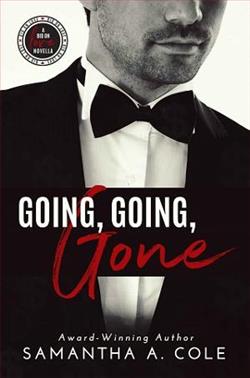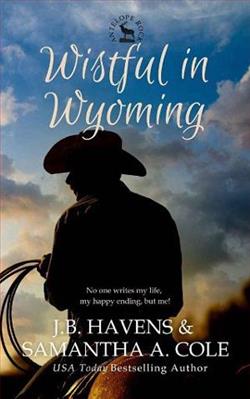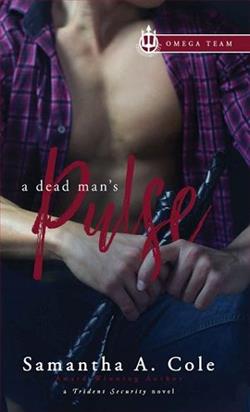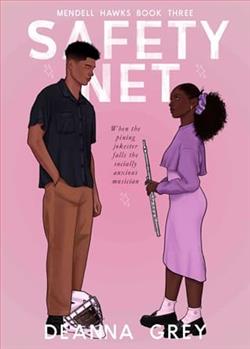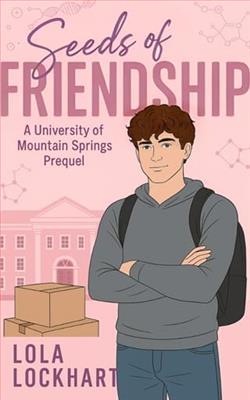Page 28 of A Shimla Affair
A cloud shifted and moonlight showered the street.
They all wore turbans and had flashes of orange scarves around their heads or waists, holding swords or sticks in one hand, burning torches in the other. Some of the men banged their sticks against the closed doors and windows, as if reminding the neighbourhood of their arrival. Some threw their torches at the carts and stands thought to be owned by Muslims, watching them catch fire. The heat from the fire reached us as we pressed ourselves against the wall, trying to remain inconspicuous. The group split up, half of them headingup towards another lane and the other half turning into the alley where we crouched. Panicked, we started backing away.
It felt as if I finally saw the world for what it is, now that someone had thrust me in the middle of death and darkness. In the talkies, there is always fear and thrill, but there is a certain kind of magic in that fear and thrill. Under the threat of our very lives, there laid no magic. Just pure, cold fate and the knock of bad luck.
What we saw next made our hearts jump out—Afreen, illuminated by the fire at the end of the street, the crowd’s eyes resting hungrily upon her.
10
Noor shrieked in a voice as loud as she could muster, ‘Stop! Stop right there! Afreen, come here!’
Our mother had given Noor her name, which in my opinion, was the most beautiful of all the names in the world:Noor,the light that guides the world. She had known even then that, as the eldest child, Noor would be the light that led us forth.
How truly Noor lived up to her destiny, especially after our father was no more. But even before, she taught me to be clever yet gentle, curious but never boastful. She taught me to listen to my elders with calm, to follow my sisters with patience, to pray and to behold and to understand with love. She also taught me to have faith in myself and that a wilful, strong mind is the greatest weapon in the darkest of times.
When the other school girls cast me out, she refused to go up to them and order them to include me. She taught me to go up to them on my own, to introduce myself and smile kindly, requesting sweetly to let me be in their company as she watched from afar. Where Afreen would go and fight for me, Noor would encourage me to fight for myself. Where Afreen was ready to destroy the source of anything that caused me problems, Noorwould hold my hand and help me navigate those problems. Where Afreen was fierce, Noor was calm.
And in the face of this storm, Noor was once again there with her light.
In a quick move, she pulled me by the arm as I stumbled forward, rushing us towards Afreen.
Noor pushed both of us behind herself and we huddled together, clutching each other’s arms and standing rapt in attention. There could have been about fifty men in front of us. At some point, their faces blurred into one another and they became a nameless, shapeless mass who had come to destroy me and my family. It seemed as if my entire life as a woman had led up to this moment, when my life, my integrity, my very soul would be threatened by a bunch of men beyond control.
I looked into the eyes of these men who were about to change my life, simply by their very presence. Their eyes seemed heated yet empty, driven by only one purpose—to maim, finish, destroy. I doubted any of them were evil people. I’m sure I would have crossed at least some of them on the street in the past, and they would have had respectfully lowered their eyes. I’m sure these men had families—wives, children, sisters, parents. People in their life for whom they would die or kill for, just as I would.
They surrounded us and slowly closed in, now just several feet away, holding up their burning torches. It was as if I could see the end of my life through their light. It cast sinister shadows even in the darkness, and I wondered what they would do to us. Burn us alive or cut us up? It couldn’t be as easy as that … my childhood flashed through my mind, and I realized it was the happiest time of my life, with my sisters, our father telling us stories … I had a fleeting thought of Charles, his blond hair, his sparkling smile.
The man at the head of the mob stepped forward: he had dark black eyes, a moustache and a sword that he proudly wielded. Hemight have been bigger than each of us, but together, all three of us formed a chain that I could see brought hesitation in his eyes. The crowd behind him made impatient noises. In that moment, I doubted that we would get out of there alive, and the second I accepted my fear, it disappeared.
He pointed the sword at us, bringing its tip to Noor’s neck, I heard her catch her breath. ‘Please,’ she started, ‘we just got lost. We have nothing to do with this fight …’ Afreen and I nodded, joining our hands together.
‘Get them! They have also taken our women, we must get back at them!’ Someone shouted from the crowd and Noor shook her head wildly. We mimicked her. ‘No we are not! We are not Muslim! Check it! Check it!’ Noor thrust out her arm, to show them the missing tattoo of the name. We did the same.
‘You are not Hindu,’ the man snarled. ‘No Hindu woman would be stupid enough to come out right now. We announced it everywhere.’
‘We are Parsi! We are Parsi! Look! We promise, we are Parsi!’
At first, I thought she was holding out the end of her sari to them, and I didn’t understand. Did she want to show them that Parsis tied their sari in a different way? I doubted these men would identify the subtleties. But then I realized it wasn’t the end of her sari she held out, but our kusti, the sacred girdle we tied around our waists. I could see the men staring sceptically at it, causing more panic on Noor’s face.
She suddenly seemed to have an idea and thrust the pendant towards them, the one we all wore around our necks, on which was carved a stunning image of the Faravahar—the force of life and light that propelled us forward, that watched over us. The pendants that our father had given to all of us when our mother died, the pendants we never took off. I prayed that the Parsi inscription on our person, our father’s gift and mother’sblessing, would work. I too held up mine to show them, and the man peered at it.
I turned to Afreen but she stood frozen next to us.
‘I took mine off,’ she said blankly, ‘Before the wedding … Hindu wedding …’
I froze in horror as suspicion took over the man’s face again. I stepped in front of Afreen, holding open my arms. They would have to kill me to get to her.
‘She’s our sister,’ Noor pleaded, ‘Please, believe us! She’s our sister, her name is Afreen, we are Mistrys, from up on the hotel, she’s married to a Hindu, Ratan Rajput, ask him, ask your people, they would know him. He’s a Rajput, she is his wife. She is a Hindu, too. Will you desecrate one of your own?’
Someone muttered something in the crowd but I didn’t quite catch it. ‘Rajput?’ Somebody asked again, and we exclaimed affirmations, repeating Parsi like an incessant chant.
Finally, the man at the head of the crowd nodded. The others at the back shifted uneasily, unhappy at his decision. ‘Outside is no place for women right now,’ he said.
Immediately, we covered our heads with the edges of our saris, tightly gripping each other’s hands while rushing off the street, further and further into the alleys, in case some of the men came to look for us on their own. We kept moving until we were in a space between two houses, hidden effectively, gasping and crying, thanking the Lord that he had spared us, that he had let us live. Noor grabbed both our hands, kissing them, telling Afreen how foolish she had been.
‘I never wanted to get both of you in danger,’ Afreen replied tearfully.
We heard more noise and fell quiet instantly. There was another group of men out on the street, this time a Muslim mob, also chanting, also smashing, out to destroy the Hindu neighbourhoods. But we were well hidden, staying quiet untilthey had walked on, as the men lit more things on fire. The Hindus destroyed Muslim streets, and the Muslims destroyed Hindu streets.








